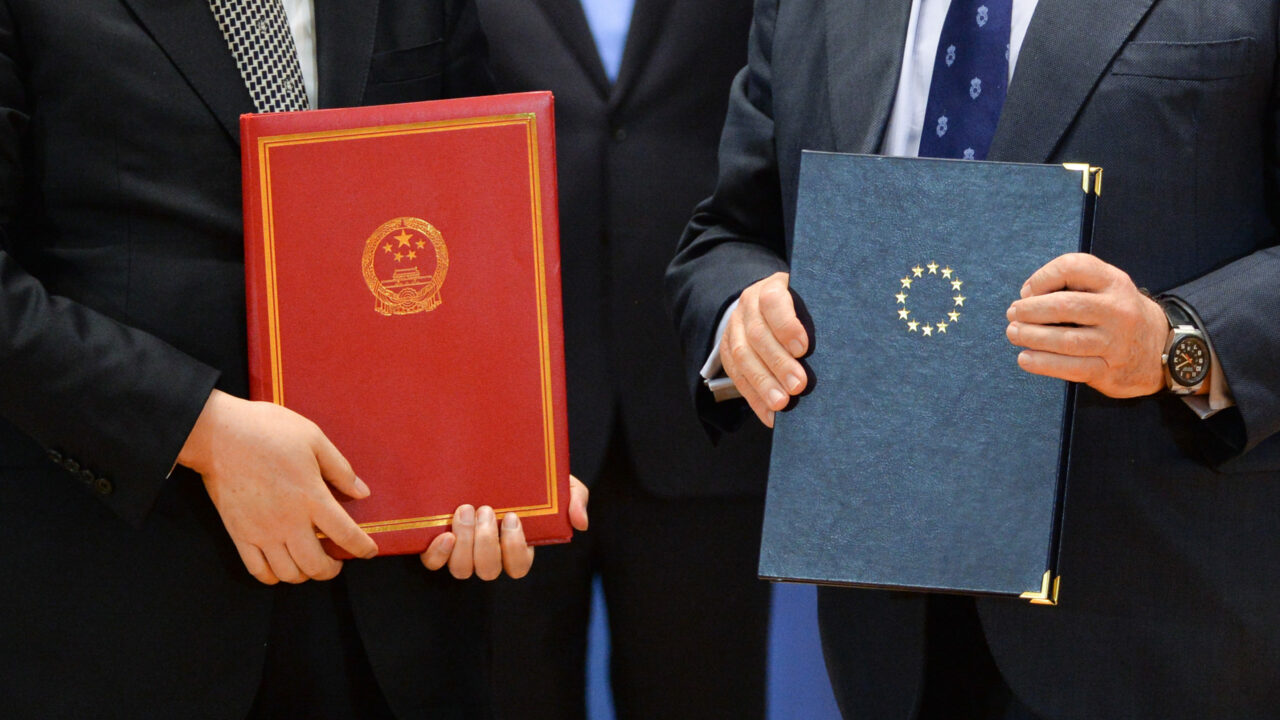Responding to the China challenge: The state of play on investment screening in Europe
The EU has taken a major step forward in protecting its interests from harmful foreign investments and takeovers. Follow ECFR’s new tracker to keep up to date with this important geopolitical challenge
The European Union is one of the most attractive destinations for foreign direct investment (FDI). As a driver of economic growth and job creation, investment from outside the EU brings great benefit to the European economy. But, under certain conditions, foreign investment can also become a threat to European sovereignty and economic prosperity.
Following growing concerns about the acquisition of strategically important companies across Europe especially by Chinese companies and investors, the EU and member states have been looking hard at how to protect critical infrastructure, industrial innovation, and defence and dual-use technology. While individual member states have been deploying investment screening mechanisms through national legislation for many years, a coordinated pan-European approach to the issue was long lacking. To fill this gap, the EU introduced legislation in March 2019 to establish a framework for screening foreign direct investment at the EU level. The new regulation came into force last month. At the same time, member states are also implementing national legislation in accordance with the framework.
To protect EU strategic interests related to foreign investment, Brussels aims to enhance cooperation and coordination between member states and the European Commission as well as among member states. Member states will now have to notify the commission of cases going through their national screening procedures. They will also have to provide information about the investment upon request. The new framework allows the European Commission and other member states to then issue opinions on proposed investments or takeovers, and raise their concerns, which must then be considered by the member state in which the investment is taking place. While these opinions are not legally binding, the European Commission openly raising concerns in this way could have a strong signalling effect. For a member state to then deliberately go against the EU’s recommendation could have negative consequences for future investment from within the EU.
The new EU regulation is a boost for greater European sovereignty
Although the new regulation is not a centralised EU investment screening tool, it is, nevertheless, a milestone in forging a more comprehensive EU approach towards detecting targeted investments in sensitive sectors and responding to them in a coherent manner. Member states that did not have national investment screening mechanisms in place before are now required by the new legislation to set up a point of contact for FDI in their country. They will have to submit annual reports summarising inward FDI activity. Politically fortified by the effects of the covid-19 crisis, the new EU regulation is, therefore, a boost for greater European sovereignty and one of the few concrete and credible deliverables on the China agenda that the EU has come up with so far.
In order to provide an overview of where individual member states stand, the following chart maps the different national approaches to FDI screening. Currently, 15 member states have national screening mechanisms in place, while five are currently in the process of adopting new mechanisms. Almost all member states are in the process of reviewing or updating their FDI screening mechanisms. ECFR will continue to monitor the developments in each member state and incorporate any changes accordingly.
Rafael Loss contributed to the research by creating the toolbox and its visualisation.
The data was updated last on 12 November 2020.
The European Council on Foreign Relations does not take collective positions. ECFR publications only represent the views of their individual authors.



